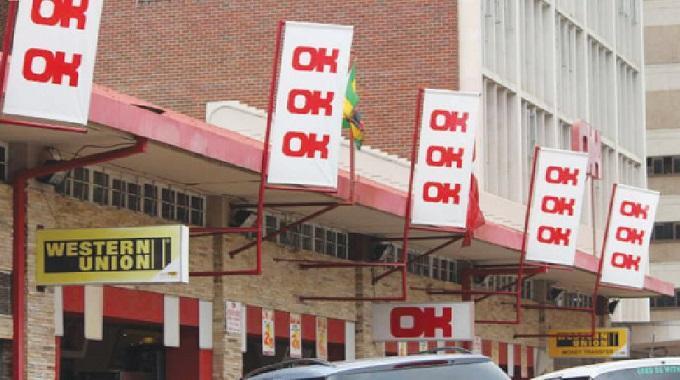News / National
Zimbabwe's retail sector faces crisis
2 hrs ago | Views

Zimbabwe's retail sector is in crisis, with more than 1,000 jobs lost so far this year due to an escalating economic downturn, as several key players signal their intention to exit the market. Regional giant Choppies Enterprise Limited (Choppies) and multinational Unilever Plc have both indicated plans to pull out of Zimbabwe, while other well-known companies like Khayah Cement Limited and clothing retailer Truworths Limited have entered corporate rescue procedures, further adding to the turmoil.
The list of companies leaving Zimbabwe grows longer, with British multinational services provider PriceWaterhouseCoopers (PwC) also announcing its exit from the country. Meanwhile, even long-standing, resilient brands like OK Zimbabwe and TM Pick ‘n Pay are struggling to stay afloat amidst the economic pressures.
The crisis has been exacerbated by the rapid expansion of the informal sector, which authorities say is severely undermining formal businesses, contributing to widespread job losses and economic instability.
Cuthbert Chikwekwete, the General Secretary of the Commercial Workers Union of Zimbabwe (CWUZ), spoke to NewZimbabwe.com on Tuesday, sharing heartbreaking insights into the situation. He revealed that the retail sector's challenges began escalating in late 2023 and have worsened throughout 2024. According to CWUZ's records, over 1,000 jobs have been cut this year, most of them affecting workers on fixed-term contracts.
"The challenges in the retail sector started escalating in late 2023 and have been worsening over the past year until they deteriorated this year. Our records show that over 1,000 jobs have been cut off and the majority of those affected are workers on fixed-term contracts," Chikwekwete said.
The workers' leader emphasized the severe impact of these job cuts on families, highlighting the challenges faced by the affected individuals. "The net effects of these job cuts are choking livelihoods. Many of these employees are failing to support their families, heightening the chances of chronic illnesses. The fact that the retail sector was hiring employees on renewable fixed-term contracts leaves them without any fallback position, like pension payouts, and when they lose their jobs, what it means is that they are nose-diving into poverty," Chikwekwete explained.
The retail sector's struggles are part of a wider economic downturn, leaving many Zimbabweans in a precarious position as they face high unemployment rates and increasing economic uncertainty. With companies pulling out and others scaling back operations, the outlook for the sector remains grim, and workers are left facing an uncertain future.
The list of companies leaving Zimbabwe grows longer, with British multinational services provider PriceWaterhouseCoopers (PwC) also announcing its exit from the country. Meanwhile, even long-standing, resilient brands like OK Zimbabwe and TM Pick ‘n Pay are struggling to stay afloat amidst the economic pressures.
The crisis has been exacerbated by the rapid expansion of the informal sector, which authorities say is severely undermining formal businesses, contributing to widespread job losses and economic instability.
Cuthbert Chikwekwete, the General Secretary of the Commercial Workers Union of Zimbabwe (CWUZ), spoke to NewZimbabwe.com on Tuesday, sharing heartbreaking insights into the situation. He revealed that the retail sector's challenges began escalating in late 2023 and have worsened throughout 2024. According to CWUZ's records, over 1,000 jobs have been cut this year, most of them affecting workers on fixed-term contracts.
"The challenges in the retail sector started escalating in late 2023 and have been worsening over the past year until they deteriorated this year. Our records show that over 1,000 jobs have been cut off and the majority of those affected are workers on fixed-term contracts," Chikwekwete said.
The workers' leader emphasized the severe impact of these job cuts on families, highlighting the challenges faced by the affected individuals. "The net effects of these job cuts are choking livelihoods. Many of these employees are failing to support their families, heightening the chances of chronic illnesses. The fact that the retail sector was hiring employees on renewable fixed-term contracts leaves them without any fallback position, like pension payouts, and when they lose their jobs, what it means is that they are nose-diving into poverty," Chikwekwete explained.
The retail sector's struggles are part of a wider economic downturn, leaving many Zimbabweans in a precarious position as they face high unemployment rates and increasing economic uncertainty. With companies pulling out and others scaling back operations, the outlook for the sector remains grim, and workers are left facing an uncertain future.
Source - newzimbabwe









































